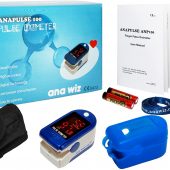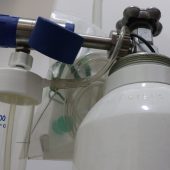Different kinds of ketone tests have varying levels of accuracy. Urine tests are usually unreliable while a ketone blood test is considered the gold standard.
It’s crucial that you pick the right kind of ketone meter for the type of test you want to carry out. In some cases, picking the right ketone meter can be a matter of life and death.
Read on to learn about the different types of ketone meters and how accurate each is. We also discuss which test to use depending on your needs.
What Are Ketones?
A ketone meter allows you to test for ketones in your body. Specifically, you can test the level of ketones.
This is important in the management of diabetes. You can also use a ketone meter if you are on a low carbohydrate diet to check if you are in ketosis.
What are ketones, anyway?
The body relies on glucose as its main source of energy. If it doesn’t have enough of it, it begins to break down fat to get the energy it needs.
One of the byproducts of fat metabolism is ketone bodies, or simply ketones. There are different kinds of ketones, which we will discuss further below.
There are two main reasons why the body can start producing a lot of ketones.
The first, and the most worrying one, is diabetes. Insulin is important in getting glucose into the cells, where it is metabolised for energy.
People with diabetes can have low levels of insulin, which starves body cells of glucose. Without glucose for energy, the body turns to fat, which in turn increases the amount of ketones in the body.
If the amount of ketones gets too high, it could result in a potentially deadly condition called diabetes ketoacidosis or DKA. The high level of ketones make the blood acidic, which is very bad for your body.
The second pathway to high ketone levels is ketosis. Unlike DKA, ketosis is harmless. In fact, people on a diet try to achieve a state of ketosis.
Ketosis occurs when you are on a very low carb diet such as keto. Reduced carb intake lowers glucose supply to the body. The cells adapt by breaking down fat to produce ketone bodies, which they then use as an alternative source of energy.
If you have diabetes (especially type 1) you can use a ketone meter to check if you are at risk of DKA. And if you are on a low carb or keto diet, a ketone meter will tell you if you’ve gone into ketosis.
To learn more about diabetes and DKA, here’s a great video that goes into the details.
Types of Ketone Meters
There are three types of ketone meters/tests.
A urine ketone test kit is the cheapest one, but it is also the least accurate. Only use urine ketone strips for ketone testing if you are just curious about your ketone levels or want an affordable way to check if you are in ketosis.
A ketone breath meter is the best option for those who want an affordable and non-invasive ketone test that’s more accurate than urine strips.
A ketone breath meter is easy to use — you simply blow into it. It’s also a lot more accurate than a urine test. It is accurate enough for dietary ketone testing as well as at-home diabetes management.
A ketone blood meter is the most accurate way to test for ketones in your body. It’s the standard method used in hospitals and is the best way for type 1 diabetics to check their ketone levels.
A ketone blood meter works much the same way as a blood glucose monitor. You deposit a teen tiny drop of blood on it and it tells you the level of ketones in your blood.
Now let’s dive deeper into the accuracy of each of these tests.
How Accurate is A Ketone Urine Test?
While it’s cheap and easy to use, a ketone urine test kit is not the best option if you want to accurately track your ketones.
One of the reasons a urine ketone test is unreliable is that it doesn’t measure the right type of ketones.
Urine ketone testing measures the level of acetoacetate ketones. It does not test for beta-hydroxybutyrate ketone bodies, which are the main ketones produced by the body after fat breakdown.
Furthermore, a urine test only measures the leftover acetoacetate ketones that the body no longer needs. So the test doesn’t give you an accurate picture of the actual level of ketones in your body.
Here are other reasons why a ketone urine test is unreliable.
- How much water you drink can affect the concentration of ketones in urine.
- The reading you get only tells you how many ketones have accumulated after you last passed urine. It doesn’t tell you the current real-time level of ketones. There’s a risk of missing ketoacidosis until it’s too late.
- The risk of a delayed diagnosis is higher if you are dehydrated. It’ll take longer for the body to produce urine, so there will be a longer delay before you realise your ketone levels are dangerously high.
So should you completely ditch ketone urine testing?
Not at all. A urine ketone test kit is great for casual ketone testing especially for dietary reasons. You can use it to track the average change in ketone levels over time.
It will not give you an accurate picture of how many ketones are in your body, but it can help you figure out the impact of your diet on your ketones.
But for diabetes management, we recommend staying away from a urine test. A ketone breath meter or blood meter is a much better option.
How Accurate Is A Ketone Breath Meter?
A ketone breath meter measures the amount of acetone ketones in your breath. Acetone is one of the three ketones produced during fat metabolism.
Some of the acetone ketones are expelled through the lungs, which gives someone a fruity or sweet smelling breath similar to that of nail polish remover.
A fruity or sweet smell is common in people who are fasting, on a keto diet and in diabetics (it can be a symptom of ketoacidosis).
A ketone breath meter is in the middle of the pack when it comes to accuracy.
It is more reliable than ketone urine test strips, but less accurate compared to a ketone blood test. But it is reliable enough that most doctors recommend it to diabetics for home ketone testing.
One study found that it can be reliably used to test for ketosis in adults (but not kids).
However, it’s crucial that you properly use a ketone breath meter. Readings are easily thrown off by a lot of things we use, eat or drink such as alcohol, lozenges, cough drops, sweeteners, gum, mouthwash, lip balm and many others.
A ketone breath meter offers the best accuracy if you use it first thing in the morning before you eat or drink anything. Remember even brushing your teeth can throw off the readings.
If you want to take multiple ketone tests throughout the day, a breath meter is not the best choice. Readings will vary wildly. A blood test is better for frequent ketone monitoring.
How Accurate Is A Ketone Blood Test?
A ketone blood test is more expensive and a bit more invasive compared to urine and breath testing. But it is the most accurate way of testing for ketones in your body.
A blood ketone meter tests for beta-hydroxybutyrate ketones in the blood.
These ketones are the chief source of energy for the body when you are in ketosis. So testing for them gives you a more accurate picture of whether you are in ketosis or if you are at risk of ketoacidosis.
And unlike a urine test, a blood test gives you a real-time reading, which is crucial in catching ketoacidosis quickly before it worsens.
Most ketone blood monitors also measure glucose levels. But you need separate strips for measuring ketone levels.
How to Improve The Accuracy of Your Ketone Meter
Here are some tips to make your ketone meter more accurate.
- Always follow the instructions provided by your doctor as well as the instructions that come with the test kit.
- For urine and breath ketone testing, morning is the best time to carry out a test before you eat or drink anything. This will give you the most accurate results.
- A ketone breath meter is very sensitive to alcohol. If you plan to take a ketone test in the morning, do not take any alcohol the previous day. That’s because alcohol can remain in your breath for 12-24 hours.
- Some ketone meters require frequent recalibration to maintain their accuracy. Check the user manual of your meter to see if any calibration is required. Some manufacturers recommend replacing the ketone breath meter sensor after a certain period.
- If you suspect the ketone meter is damaged (e.g. after a drop), get a new one or see if you can get it repaired/recalibrated.


